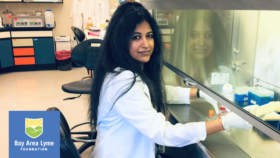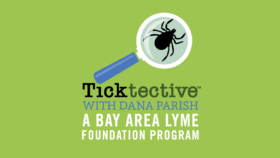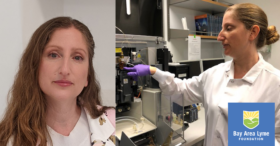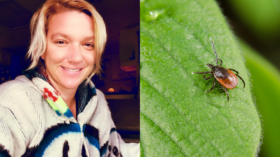Distinguished Speaker Series Transcript
“Everything about this disease is infinitely more complex and nuanced than is taught to physicians.”
– Charlotte Mao, MD MPH
 Charlotte Mao: Thank you Dana for that amazing introduction and Brandi too. I want to thank Brandi for so generously opening up your beautiful home for this event and Bay Area Lyme Foundation for inviting me to speak tonight about my personal perspectives as a pediatric infectious disease physician about Lyme disease in children, particularly neuropsychiatric manifestations.
Charlotte Mao: Thank you Dana for that amazing introduction and Brandi too. I want to thank Brandi for so generously opening up your beautiful home for this event and Bay Area Lyme Foundation for inviting me to speak tonight about my personal perspectives as a pediatric infectious disease physician about Lyme disease in children, particularly neuropsychiatric manifestations.
When Brandi asked if I might give a talk for this Speaker Series, I suggested this topic because, first, I hope there might be something instructive in some of my personal musings on key lessons I’ve learned about Lyme disease in the course of caring for children with this contested disease. Second, I want to highlight neuropsychiatric manifestations because I feel they generally are the least recognized by physicians as being potential manifestations of Lyme disease. Yet, taking into account all levels of severity, they are, in my view, actually quite common—certainly not uncommon—and when severe, they are among the most devastating of Lyme manifestations to the lives of children and their families.


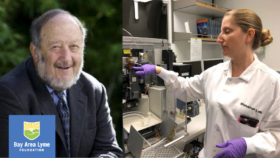
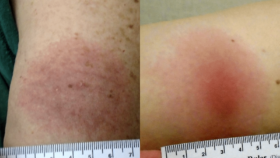
 Anna Schotthoefer, PhD, a project scientist at Marshfield Clinic Research Institute in Wisconsin, discusses the collection and analysis of a specific subset of blood and urine samples for Lyme Disease Biobank—a Bay Area Lyme Foundation program—from patients diagnosed with tick-borne diseases in the state. Marshfield Clinic serves a large population in Wisconsin and Michigan’s Upper Peninsula, which are highly endemic for Lyme disease. Her Bay Area Lyme-funded
Anna Schotthoefer, PhD, a project scientist at Marshfield Clinic Research Institute in Wisconsin, discusses the collection and analysis of a specific subset of blood and urine samples for Lyme Disease Biobank—a Bay Area Lyme Foundation program—from patients diagnosed with tick-borne diseases in the state. Marshfield Clinic serves a large population in Wisconsin and Michigan’s Upper Peninsula, which are highly endemic for Lyme disease. Her Bay Area Lyme-funded 
 Sunjya Schweig, MD, founder of the
Sunjya Schweig, MD, founder of the 